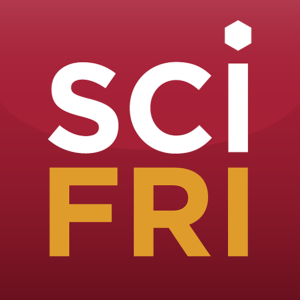
Science Issues In the Election, Diabetes and Hibernating Bears, Medicine Nobel. Oct 7, 2022, Part 2
 2022-10-07
2022-10-07
This November’s general election season covers every level of government, from Congress at the federal level, to state governors and local ballot initiatives. Also on the ballot are many issues where understanding science better might result in better policy—think zoning questions about building next to rising seas or fire-prone wildlands, or questions about drug legalization and abortion access. Even whether to invest in education that might create more STEM workers—that’s a science question too.
Ira talks to Rachel Kerestes of the American Association for the Advancement of Science’s ‘Science is US’ initiative, and Howard Learner of the Environmental Law & Policy Center. They cover region-specific and state-specific science concerns, the need to connect more policy makers to scientific expertise, and how voters can have a voice in science issues even at the local and state level.
Make your voice heard! Go to www.sciencefriday.com to fill our our survey about which science issues you see on your ballot.
Svante Pääbo Awarded Nobel For Examining The Ancient Human Genome
This week, geneticist Svante Pääbo was awarded the 2022 Nobel Prize in Physiology or Medicine. Pääbo is the director of the Max Planck Institute for Evolutionary Anthropology in Leipzig, and his research looks at finding bits of genetic material from ancient hominid lineages embedded within the modern human genome. The prize committee awarded the prize “for his discoveries concerning the genomes of extinct hominins and human evolution.”
Pääbo described his work as like an archeological dig. “We sort of make excavations in the human genome,” he said. “What we do is to look for the genetic material, for DNA, from people who have lived here long before us, and try to see how they are related to us, and how they are related to other forms of humans that were also here, such as Neanderthals.”
In a conversation recorded in 2017, Pääbo describes his research, and how his team has developed molecular techniques to see where fragments of ancient DNA might still be found in the modern human genome. Spoiler alert—we’re all a little bit Neanderthal.
What We Can Learn About Diabetes From Hibernating Bears
About one in 10 Americans have diabetes, and most of the cases are Type 2, in which cells become more resistant to insulin. But wouldn’t it be cool if we could flip a switch so those cells become sensitive to insulin again?
That’s pretty much what bears do when they hibernate. A new study in the journal iScience identifies the eight proteins that allow bears to turn their insulin on and off, which keeps them from burning through their fat stores while they snooze.
Although they hibernate for months, bears wake up from their slumber with their muscle still toned, bones intact, and organs functioning normally. But after a few weeks on bedrest, humans can’t. By studying how bears hibernate, researchers hope to find ways to cure human ailments.
Dr. Blair Perry, a postdoc studying genomics at Washington State University, joins Ira to talk about what we can learn from bear biology.
Transcripts for each segment will be available the week after the show airs on sciencefriday.com.
More Episodes
 2024-03-21
2024-03-21
 2024-03-20
2024-03-20
 2024-03-14
2024-03-14
 2024-03-08
2024-03-08
Create your
podcast in
minutes
- Full-featured podcast site
- Unlimited storage and bandwidth
- Comprehensive podcast stats
- Distribute to Apple Podcasts, Spotify, and more
- Make money with your podcast
It is Free
- Privacy Policy
- Cookie Policy
- Terms of Use
- Consent Preferences
- Copyright © 2015-2024 Podbean.com



